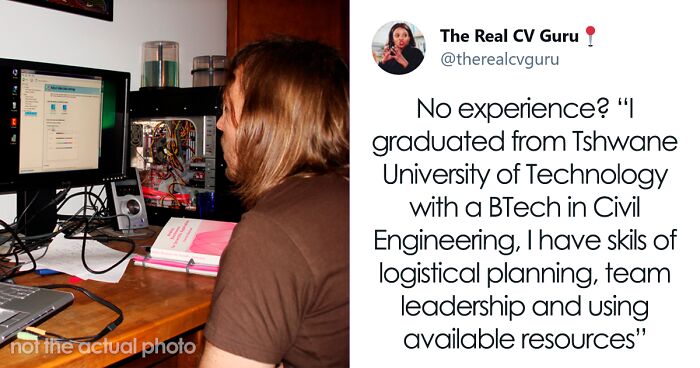
People Are Loving This Thread Explaining How To Send Job Applications Via Email
Interview With AuthorIt’s probably safe to assume that most often people search for jobs on the internet and apply for them online. There are plenty of websites where you can apply for jobs and usually they have their own templates and application systems. But if you’re applying directly by sending an email, you may wonder how it is done so you leave a good impression about yourself.
A career strategist on Twitter shared her tips on how to apply for jobs via email and more than 33k people liked it, saying that it was very helpful. Obviously, writing an email to your potential employers isn’t a thing you learn at school and it’s not actually intuitive, so when a professional shares what job recruiters expect of you, it’s worth listening.
More info: Twitter
A career strategist shared her tips on how to send a job application via email after she noticed what common mistakes people were making
Image credits: Travis Rigel Lukas Hornung
The Twitter user @therealcvguru‘s real name is Zola Maphila and she is a career strategist that helps others to land their dream jobs. On her Twitter account, she shares many tips that can help you find a job and inspires people to not give up.
This is not the first time her tweets have gone viral. A couple of months ago, Zola wrote a thread about what things you shouldn’t include in your CV and if you’re interested to know more, Bored Panda has an article on the thread here.
Image credits: therealcvguru
But the career strategist would like you to know that a well-written email does not guarantee a job. While answering questions in the comments, Zola wrote that not even a good CV can lead you to your dream job. What she would like people to take from this thread is that basic email etiquette and efficient communication shouldn’t be underestimated.
Firstly, it is important to mention the recipient’s name in the greeting
Image credits: therealcvguru
Image credits: therealcvguru
So the first tip when applying to jobs via email is to include the name of the recipient in the greeting. According to Zola, it is important as it allows you to create a connection with the person you are writing to.
A person in the comments shared their story that actually they had done this, but received a very negative reaction. Zola’s response was that usually people like the sound of their own name and that it makes the letter look more personalized to them.
For the subject, you could add the name of the position you’re applying to and your name if the job post had no requirements for it
Image credits: therealcvguru
In the subject of the email, you should include the position you are applying to and your name if no other specific things were asked in the job description. Another Twitter user added that it is helpful to also include the vacancy number or job ID if the job is advertised in several different locations.
The body should include mentioning the position you’re applying for and relevant skills and experience
Image credits: therealcvguru
Image credits: therealcvguru
The body should include the position you’re applying to and a concise description of relevant job experience.
Bored Panda asked Zola, what you should include if you don’t have work experience at all or it is irrelevant. Her advice would be to emphasize your skills and achievements. You can also mention what skills you gained that would be useful in the position for which you are applying. “Doing this shifts the focus slightly away from your work experience, which might be a bit irrelevant to that audience, and instead draws focus on your capabilities, skills and accomplishments. Further to this, it helps you demonstrate that there is an overlap between what you are capable of doing and what your target audience requires of you to do.”
If you have no experience, you could mention your education and what skills you have that would be useful for that position
Image credits: therealcvguru
Image credits: therealcvguru
To conclude, attach your CV and cover letter and let the person know you’ve done it. Be polite and don’t forget to leave your contact information.
Other tips are to not forward the email and start a new conversation each time, don’t repeat the same information in the email that you wrote in the cover letter and CV, and don’t leave any spelling errors.
Other Twitter users would add that it is always a good idea to rename the documents you send and not leave the default title. Someone mentioned that it is smart to edit your CVs for each position according to the requirements that are listed in the job post.
At the end, just add the required documents and be polite as, according to Zola, the point of the email is to show your communication skills
Image credits: therealcvguru
We asked what was the most common question Zola got in this thread, so if you’re thinking about the same thing, we can clear your doubts. People often asked if the email intro really matters and in the professional’s opinion, it depends: “I can’t speak for every recruiter and hiring manager. Some do not pay attention to these details and/or do not have the capacity to go through every email intro, and much prefer that you get straight to the point. Others find value in candidates who take the time to do this, especially when you are applying for roles where you’ll need to demonstrate great written communication skills.“
Image credits: therealcvguru
We were curious if Zola had any idea why this thread in particular caught so many people’s attention and she responded that she didn’t expect it to go viral and explained what inspired her to educate more people on this. “I was helping a recruiter in my network find candidates for a role that she needed to fill, and upon receiving e-mails from candidates, noticed that many of them didn’t write any introduction in the body of the e-mail and nothing in the subject line, whilst others forwarded their resumes from previous e-mail conversations, and I thought the thread would be a great way for them, and other job seekers, to learn the importance of basic e-mail etiquette and how to communicate effectively.“
People in the comments were grateful for this information and some even added tips of their own
Image credits: bareosman
Image credits: emenugha
Image credits: PrettyFaffy
Image credits: tinashe_wacho
Image credits: Tonde_Shamu
Image credits: Zama9712
Image credits: Baleseng_Teboho
Image credits: Mosima_Mannya
Image credits: sifisow_zwane
Image credits: BryanTash
I worked in the HR department of a Japanese company's subsidiary, major international players like them usually have you upload your info to their website directly so you don't get to send anyone an email, you simply fill out the pre-determined form and upload CV, which is why is FAAAAAAR more important to focus on the content of and how you name the file that contains your CV rather than your salutation or going on an insane and frankly creepy online goose chase for the hiring manager's name.
I was thinking the same thing. Everything she writes instantly comes across as too composed and fake. And if someone put my name in their application I would not think connection, I would be thinking crazy.
Load More Replies...I worked in the HR department of a Japanese company's subsidiary, major international players like them usually have you upload your info to their website directly so you don't get to send anyone an email, you simply fill out the pre-determined form and upload CV, which is why is FAAAAAAR more important to focus on the content of and how you name the file that contains your CV rather than your salutation or going on an insane and frankly creepy online goose chase for the hiring manager's name.
I was thinking the same thing. Everything she writes instantly comes across as too composed and fake. And if someone put my name in their application I would not think connection, I would be thinking crazy.
Load More Replies...
 Dark Mode
Dark Mode 

 No fees, cancel anytime
No fees, cancel anytime 



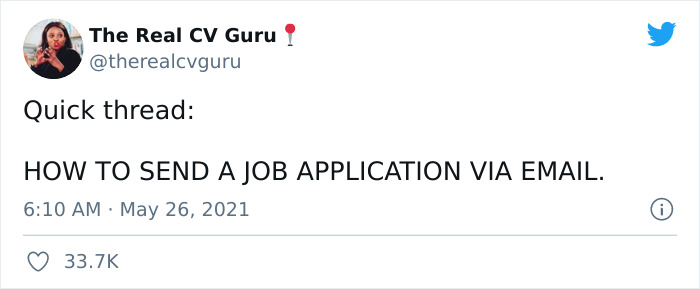
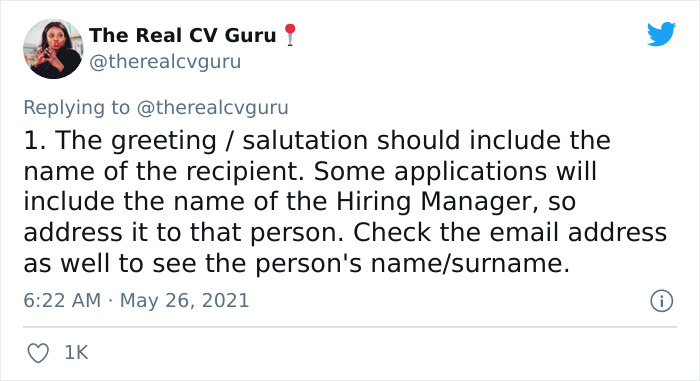
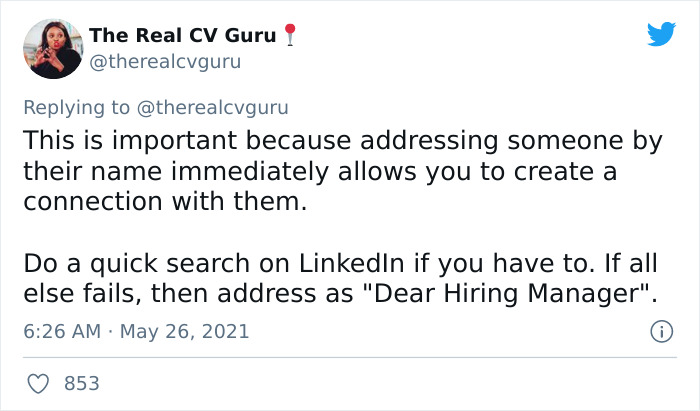
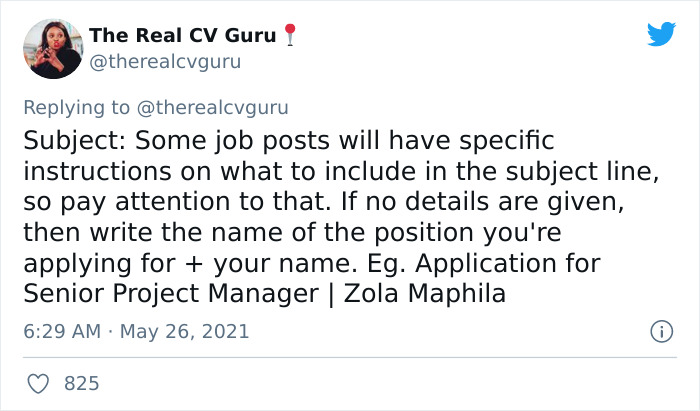
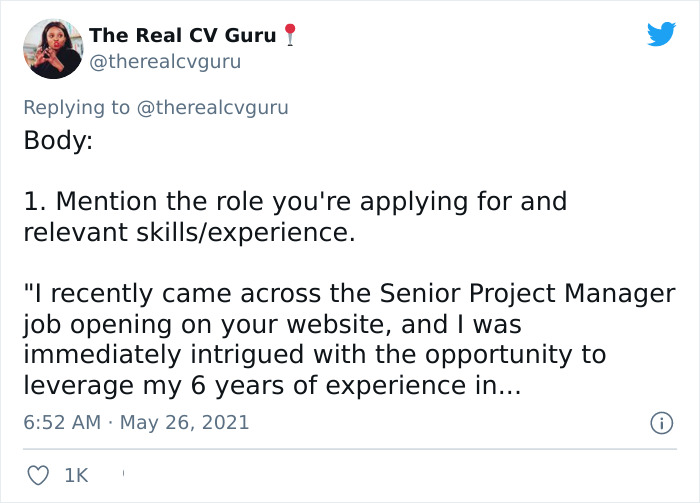
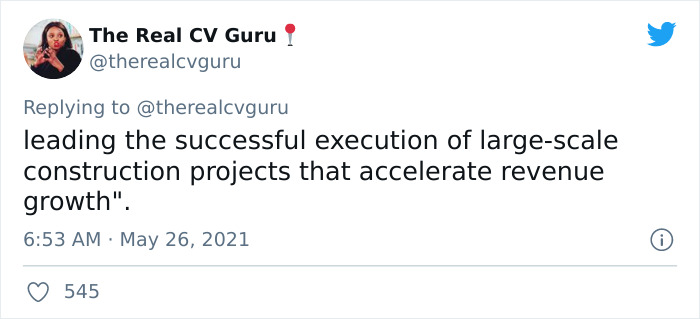
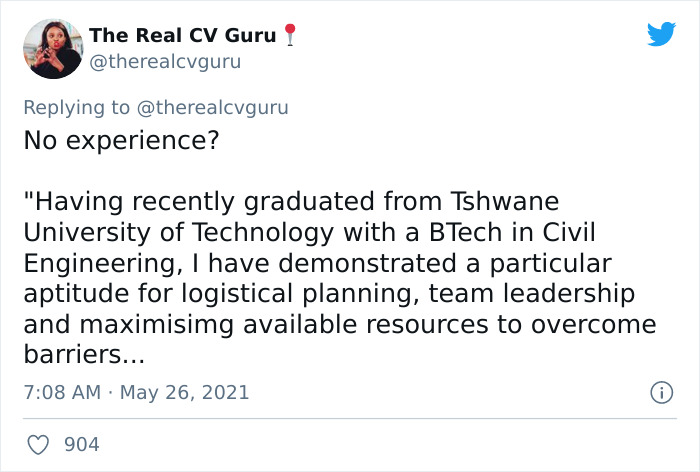
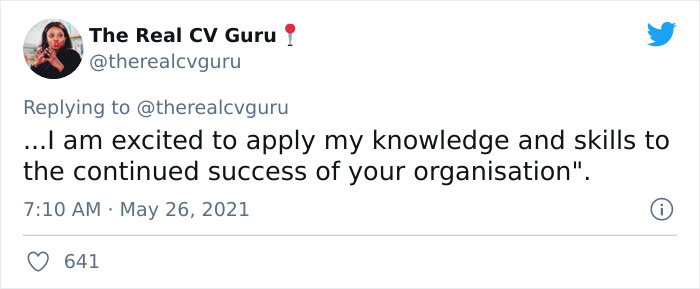
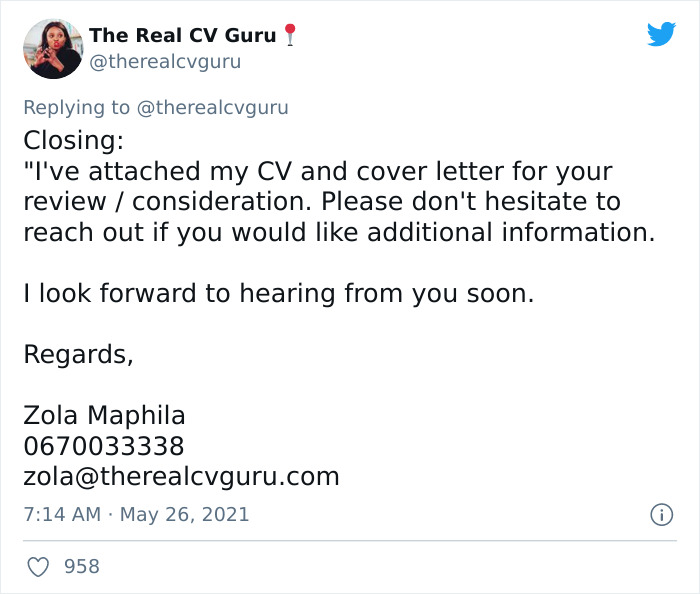
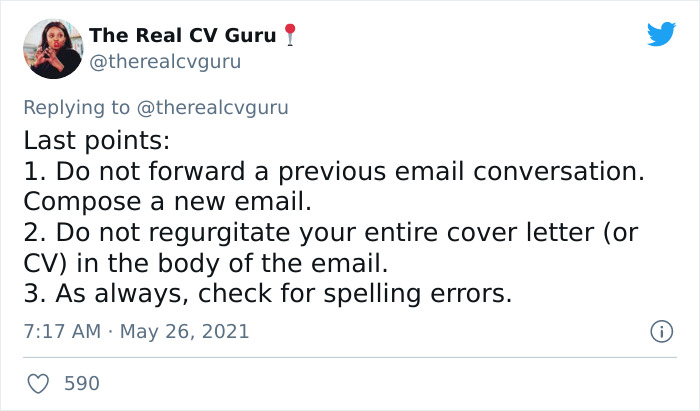
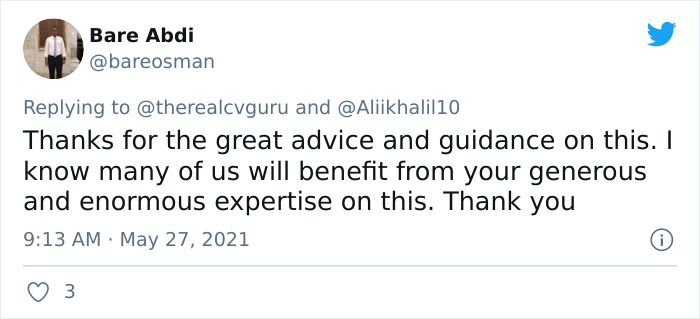
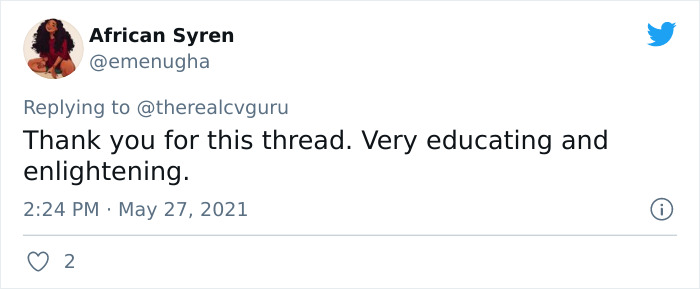
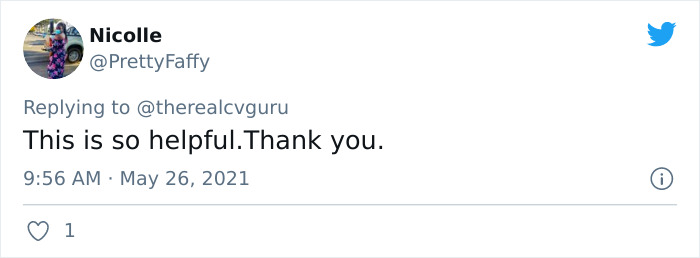
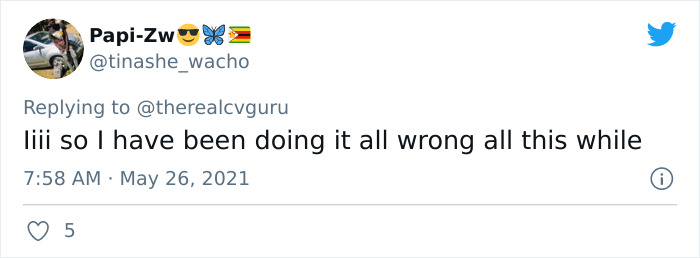
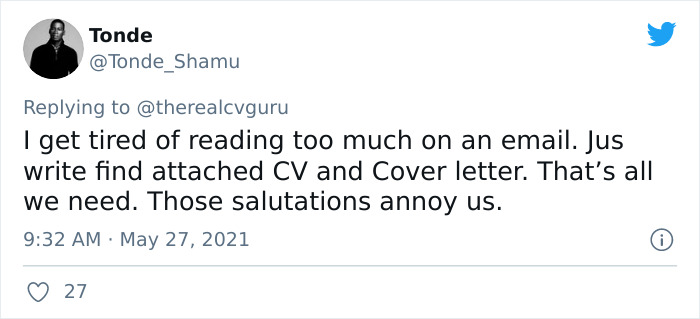
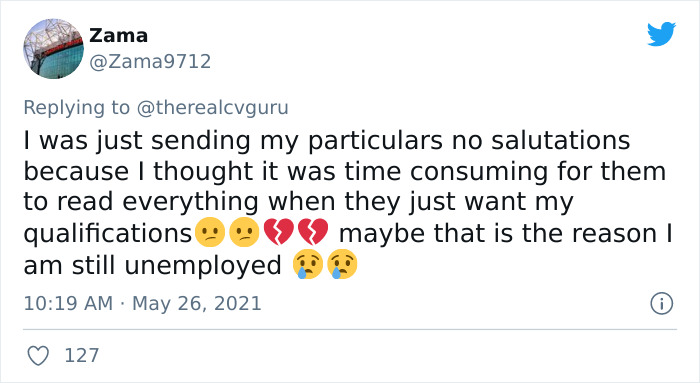
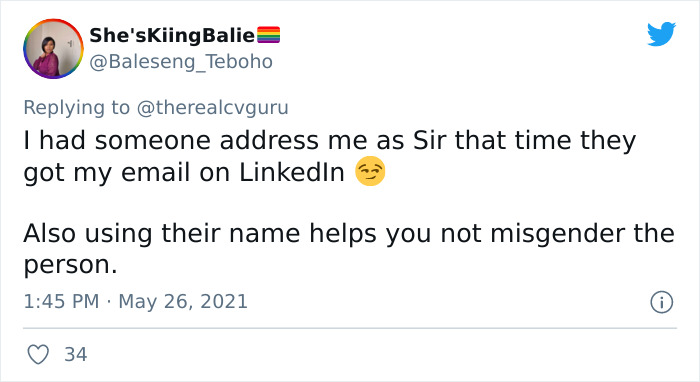
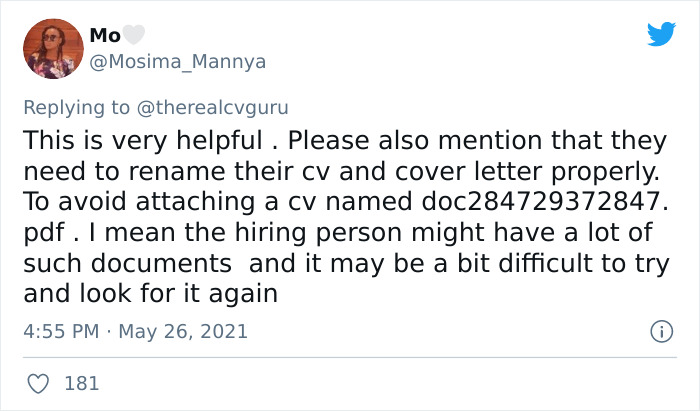
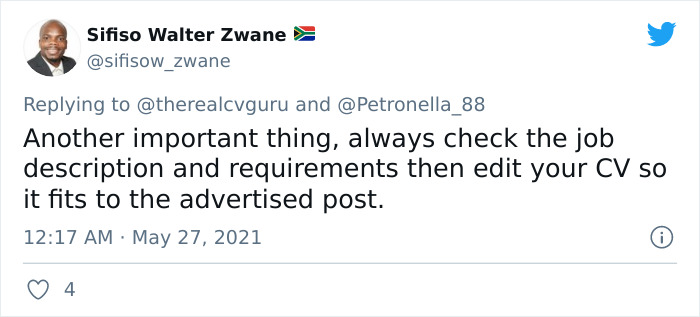
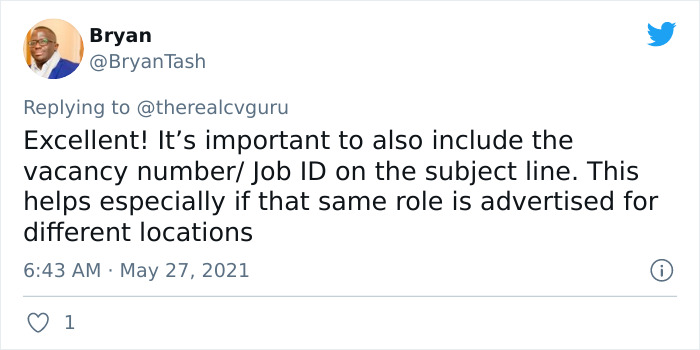



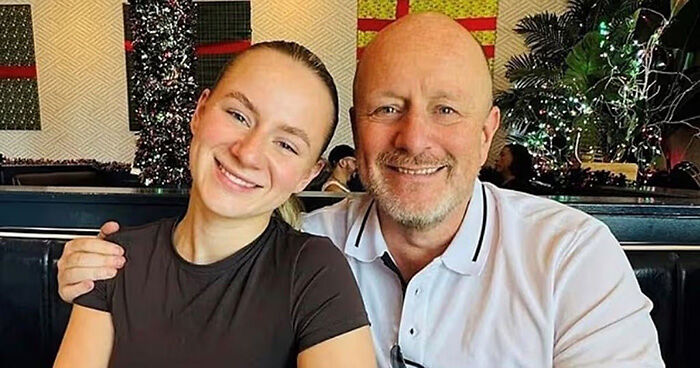





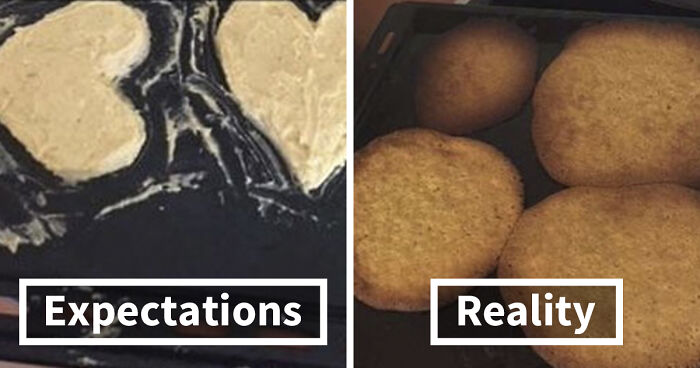

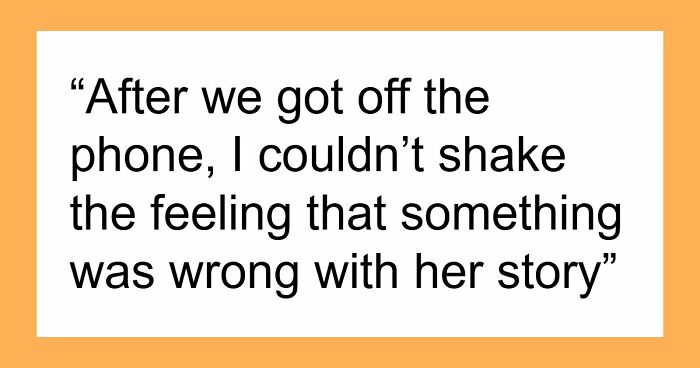



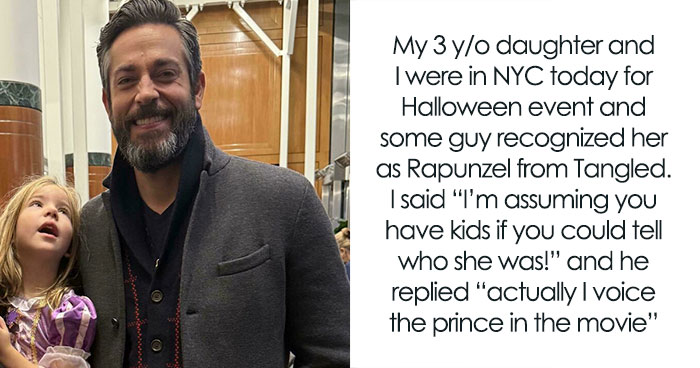
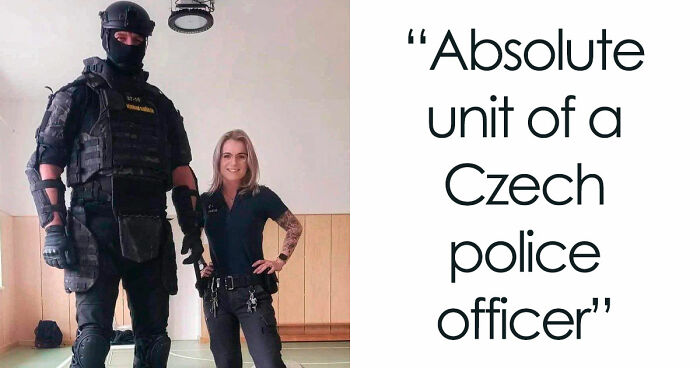


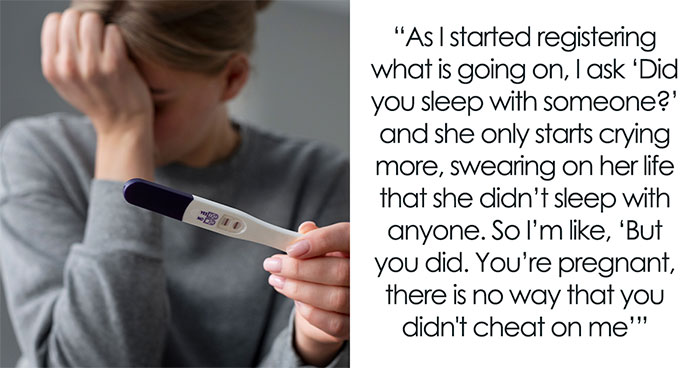



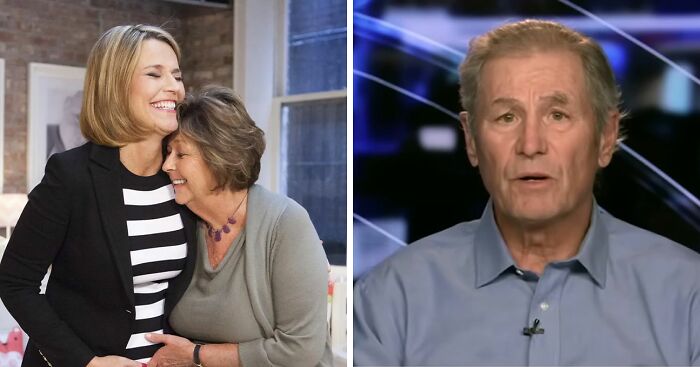



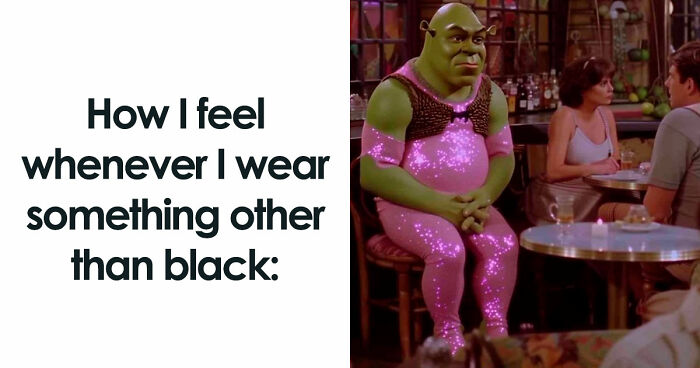
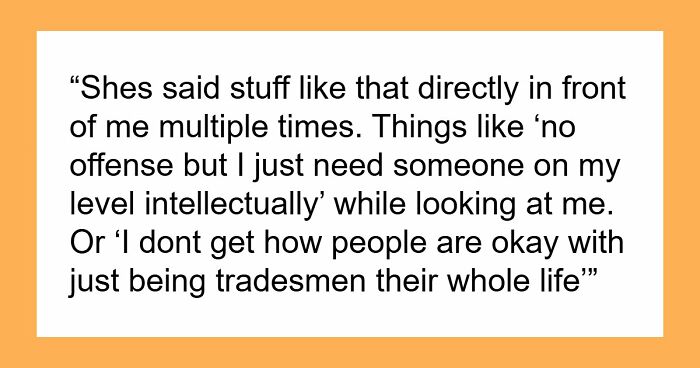









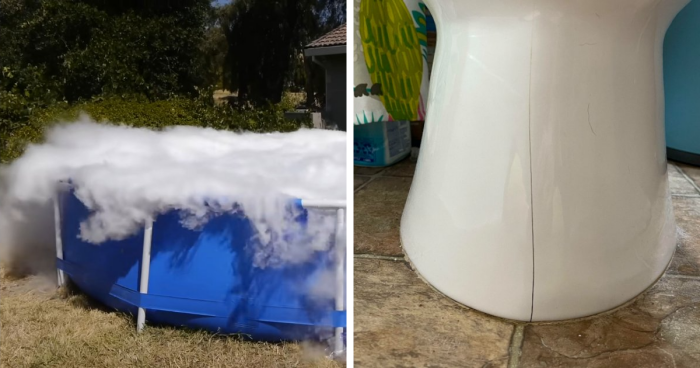
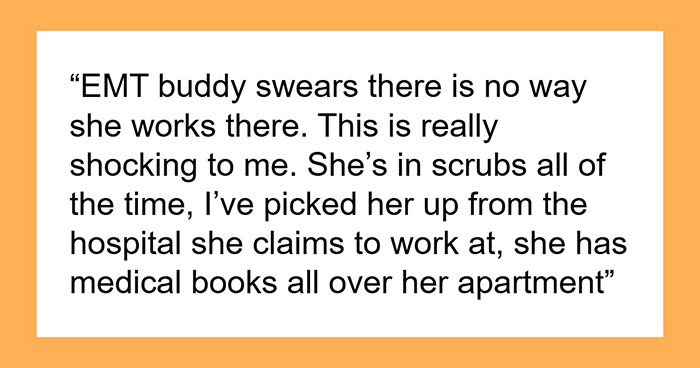


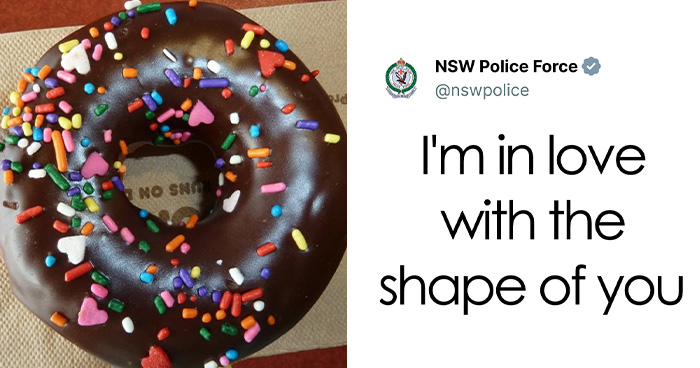
65
13